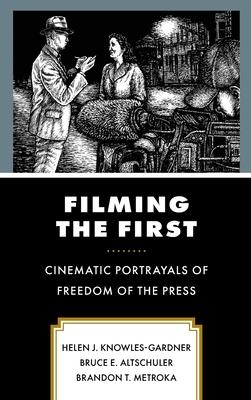The First Amendment to the U.S. Constitution prohibits Congress from abridging freedom of the press. But, as the printed press has been transformed into mass media with Americans now more likely to get their political information from television or social media than from print, confidence in this important, mediating institution has fallen dramatically. Movies, in their role as cultural artifacts, have long reflected and influenced those public attitudes, inventing such iconic phrases as "follow the money" from All the President's Men and "I'm mad as hell and I'm not going to take this anymore" from Network. Filming the First: Cinematic Portrayals of Freedom of the Press analyzes eighteen films that span from Citizen Kane to Spotlight showing changes in how the press have been portrayed over time, which voices receive the most attention and why, the relationship between the press's "Fourth Estate" role and the imperatives of capitalism, and how, despite the First Amendment's seemingly absolute language, the government has sometimes been able to limit what the public can read or view.

Filming the First: Cinematic Portrayals of Freedom of the Press
The First Amendment to the U.S. Constitution prohibits Congress from abridging freedom of the press. But, as the printed press has been transformed into mass media with Americans now more likely to get their political information from television or social media than from print, confidence in this important, mediating institution has fallen dramatically. Movies, in their role as cultural artifacts, have long reflected and influenced those public attitudes, inventing such iconic phrases as "follow the money" from All the President's Men and "I'm mad as hell and I'm not going to take this anymore" from Network. Filming the First: Cinematic Portrayals of Freedom of the Press analyzes eighteen films that span from Citizen Kane to Spotlight showing changes in how the press have been portrayed over time, which voices receive the most attention and why, the relationship between the press's "Fourth Estate" role and the imperatives of capitalism, and how, despite the First Amendment's seemingly absolute language, the government has sometimes been able to limit what the public can read or view.